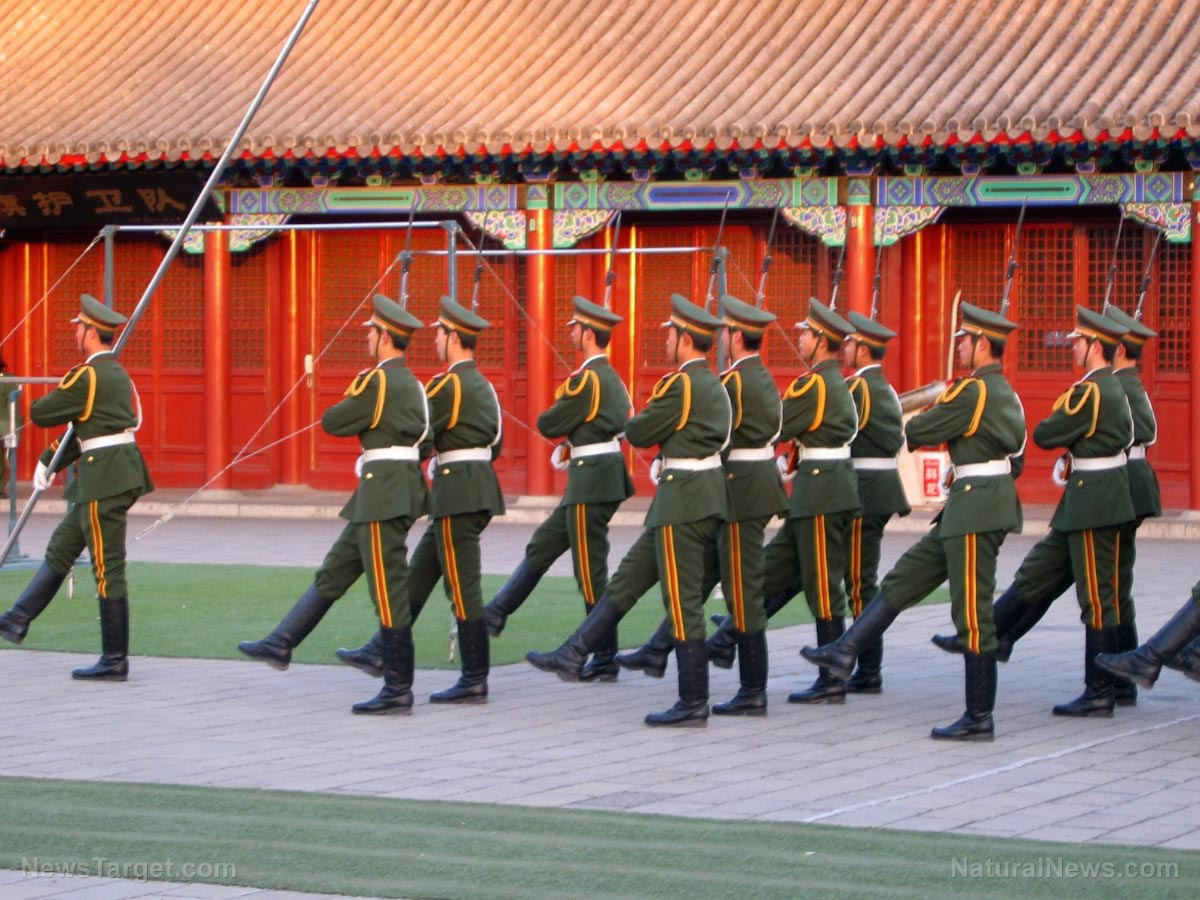China is using the coronavirus pandemic to speed up its plans for global DOMINATION
11/01/2020 / By Arsenio Toledo

A U.K. minister of parliament party warning that the Chinese Communist Party will achieve global dominance sooner thanks to the Wuhan coronavirus (COVID-19). This warning was written by Iain Duncan Smith, the former leader of the Conservative Party.
In an op-ed in The Telegraph regarding China’s rising prominence, Duncan Smith lamented the fact that, while China was supposedly on the road to recovery, the U.K. was getting ready to reimpose strict lockdowns across swathes of their country.
The MP further noted that the U.K. isn’t alone in this regard. The coronavirus continues to wreak havoc across most of the developed world, particularly in Europe and the United States.
China has been a notable exception to this rule. If their official pronouncements are to be believed, they haven’t had to deal with a large-scale resurgence of the coronavirus in a very long time. (Related: Beijing using the coronavirus pandemic to expand internet surveillance apparatus.)
In fact, as many economies in the Western world are going through a recession, China just announced that its GDP grew by 4.9 percent in the third quarter, and analysts expect the country’s economy to grow by 7.6 percent in 2021.
“There is a deep sense of irony here,” wrote Duncan Smith. “The country from which coronavirus came, and which did so little in the early days to help the rest of the world escape its spread, is now bouncing back by selling us the equipment we need to combat that very virus.”
China set to dominate the world through trade
Despite predictions that the coronavirus pandemic – coupled with the ongoing trade war with the United States – would finally shatter China’s economy, the communist regime is still standing strong.
In the first two months of 2020, Chinese exports contracted by an astonishing 17.1 percent. However, As the coronavirus pandemic started spreading across the world and demand for medical equipment, personal protective gear and appliances for people to start working from home such as computers and smartphones increased, Chinese exports received an enormous boost.
Duncan Smith points out that the pandemic has given China a trade surplus of $58.93 billion. The country’s exports have been increasing since June, and the yuan – China’s currency – hit an 18-month high before the communist government intervened to keep it more stable.
Many investors in the West are once again lining up and give the communist regime more of their money. In the United States, investors just gave the regime $27 billion in China’s first U.S. direct investment bond. Foreign Direct Investment inflows now amount to around $103 billion.
“China’s export performance during the crisis is indeed proof of its solid status as the world’s factory,” said Yao Wei, a Chinese economist for French investment bank Societe Generale. “It is reliable, as the quick and effective containment of the outbreak in China allowed its manufacturing sector to resume operations way ahead of others.”
Economic warfare is not the only way China is achieving its global dominance. Within its own borders, Uighurs are being forced into reeducation camps to have their cultural identities extinguished, Tibetans are being forced into labor camps, Mongolians are being barred from learning their own language, and its democracy-loving subjects in Hong Kong are facing persecution.
Outside its borders, it is currently engaged in a tense struggle with India over their borders in the Himalayas region, and it continues to solidify its grip over the resource-rich South China Sea. All this is not even considering the military threats it makes against democratic Taiwan.
The Free World can still fight back against China’s rise
There is a chance for the rest of the Free World to catch up. China has lost much of its early trade advantage as soon as lockdowns started getting rolled back in its rival trading partners. Chi Lo, a Greater China economist for BNP Paribas, believes that China’s export growth can fade as soon as world production goes back up to normal levels.
The strength of its growth is already being challenged by geopolitical tensions. When the Trump administration imposed sanctions on Huawei Technologies Co., the country had to increase its imports from Taiwan, Japan and South Korea.
For China’s emerging global dominance to be properly counteracted, however, Duncan Smith says the Western world needs to act quickly. To do that, it needs to stop pouring money into the country. If countries like the U.K. and the U.S. continue to do so, they may one day find themselves “ever more dependent on this authoritarian regime.”
Chinese President Xi Jinping has a clear vision for the future of his country, said Duncan Smith. They plan to be the world’s leading superpower in terms of economic and military might by 2049 – at the centennial anniversary of the country’s founding.
“All the while, President Xi Jinping’s ambition grows and grows. While coronavirus has turned life upside down for people across the West, for China the most significant effect is that it will achieve global dominance even earlier than its communist rules had planned,” said Duncan Smith at the conclusion of his opinion piece. “The only remaining question – when will the West wake up?”
Learn more about how the coronavirus pandemic is affecting the United States’ national security and its future economic prospects by reading the latest articles at Pandemic.news.
Sources include:
Submit a correction >>
Tagged Under:
China, Chinese Communist Party, communist China, coronavirus, covid-19, domination, economic warfare, economics, economy, evil, Flu, free world, geopolitics, globalism, government, Iain Duncan Smith, infections, investments, outbreak, pandemic, superbugs, superpower, trade, trade war, United Kingdom, virus, Western world, world dominance, Xi Jinping
This article may contain statements that reflect the opinion of the author
RECENT NEWS & ARTICLES
Infections.News is a fact-based public education website published by Infections News Features, LLC.
All content copyright © 2018 by Infections News Features, LLC.
Contact Us with Tips or Corrections
All trademarks, registered trademarks and servicemarks mentioned on this site are the property of their respective owners.





















